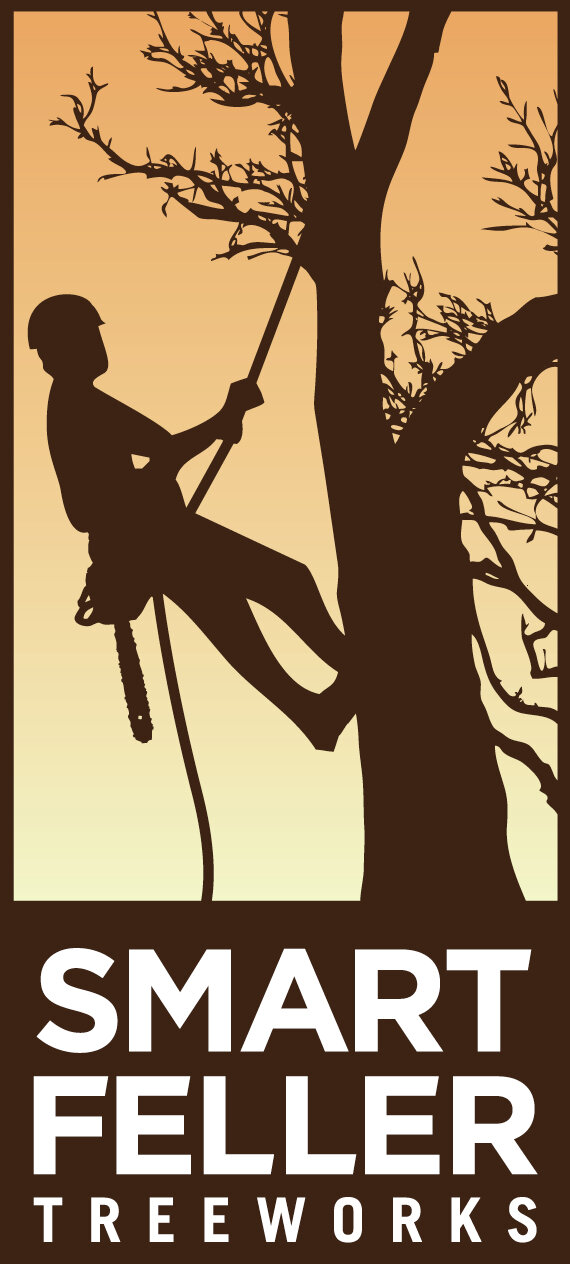When your neighbor wants to remove thriving trees (use this).
We caught a post on a community tree forum recently. The poster was asking for help: she was distressed to learn that her new neighbors were plotting to remove healthy trees on their property. How to talk them out of it?
It got us thinking: we need to put out a Smart Feller Tree Works-approved response that anyone can use in this situation. As our region attracts new residents, it's a situation that's going to crop up more and more.
Below is the original posted plea with our suggested response, written as a "Dear Neighbor" letter to adapt, share, copy, paste, email...
Sidenote: we love this individual's plea for its 1) tree awareness and care! 2) active compassion for working with and possibly trying to change this neighbor's mind. Let's change some minds.
Remember: you are not alone in caring for trees. When you need an arborist to help make your case, you can find International Society of Arboriculture Certified Arborists in your area by searching on treesaregood.org.)
“I have new neighbors who recently moved here from out of state. In our first conversation, they shared that they plan to remove some trees on their property “so they can have a view.” I’m pretty sure I had a visible reaction to that statement, but I hoped for the best and had fingers crossed for minimal impact.
The tree company came in the past week to mark the trees they want removed and there are SO many. It is breaking my heart to walk by their home and see all these beautiful, healthy mature trees wrapped in pink tape, just waiting to be senselessly killed.”
(If you’re ever find yourself in the case above, below is a response you can use, adapt, mail, email, etc.!)
Dear Neighbor,
Hi. We want you to know that we feel strongly about preserving healthy trees young and old in our neighborhood, and that you live in a community that values this. We hope you’ll hear us out and reconsider removal of your trees.
Trees are our number one defense against a warming world and, here in Asheville, we’re on a disturbing trend toward canopy loss. Every tree counts. This is the reality of the world we all live in. Tree consciousness is part of living here in Western North Carolina. It may feel uncomfortable or intrusive, but we welcome you into it.
Removing trees in order to see a “better” view of our wonderful mountains (and living trees in the distance) will cause stress to the plant and soil communities on your property. Many of these stresses will go unnoticed, but they are still there even if we aren't paying attention. Removing trees on our mountain slopes disrupts soil systems that are working in many ways to keep that slope from sliding into the French Broad. Just look to California, where trees on slopes are lost to wildfires, and they must live with landslides as a result. Your trees will lose their leaves in winter; why not keep them and celebrate the beautiful recurring winter view?
When you remove trees from your property, you negatively impact neighboring trees that remain. Trees live in correspondence with each other, in community air and soil. With the loss of a tree, its neighbors who remain lose a partner with which to share and gain resources, causing stress. The remaining canopies will also be exposed to wind loading that they are not used to experiencing, making them more vulnerable in the world.
Some folks will say, “oh, I’ll just replant.” Even if the new tree is planted correctly and it survives, it will take decades and decades to replace the carbon sequestering that your mature tree once held. If you allow a mature tree to be cut in its prime, it won’t be able to pass its lessons to the younger trees around it. Replacing mature trees with a cultivated nursery product that only knows fertilizer, grass, and full sun is not an in-kind replacement.
Three more things to note about your trees and their resilience. Even if your trees have a fungal infection, they may be treatable by one of the many certified arborists in town. If your trees have decay or a nasty wound, have a certified arborist examine how the tree is responding to it: there are many ways trees signal how they're coping just fine. And there is likely plenty an arborist can do to help its recovery. If a tree is “leaning,” no need to panic. It is most likely growing toward the sunlight it needs and poses no great risk of failure if it has had a healthy habitat. Living with trees rather than against them is possible and should be celebrated.
We are all drawn to live in these beautiful tree-filled mountains because we want to walk in the woods. We want to live in the woods. Living “in the woods” comes with responsibility to preserve rather than strip our mountains. We’re at a dangerous point here in our region where development will only increase. Stripping our land of trees will only hurt the place we love and call home.
Thank you for loving this place, thank you for listening, thank you for being open to hearing us out. Could we have a conversation, or have a certified arborist out for a conversation about it all before you make your decision?
Your neighbor
PS. You can also find a list of qualified, accredited arborists by searching our area, here.


